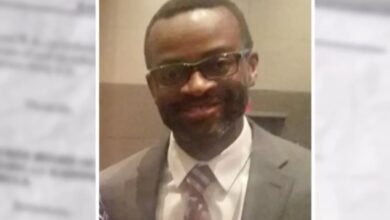Vt. Human Rights Chief: Progress Made, More Needed
by David Gram, Associated Press
MONTPELIER, Vt. (AP)—When Robert Appel thinks about his 11 years as executive director of the Vermont Human Rights Commission, he’s not thinking about the high-profile cases involving gay weddings and breast-feeding mothers. Instead, he finds himself reflecting back to 1993.
That was the year Gov. Howard Dean appointed Appel to his previous job as Vermont’s defender general, the person responsible for overseeing the state’s lawyers who represent poor criminal defendants and the Prisoners’ Rights Office, which provides legal aid to inmates.
That was also the year a severely mentally ill inmate, David Carriger, choked to death on his own vomit while handcuffed and shackled in solitary confinement at the state prison in St. Albans.
Appel said the Carriger case pointed to a failure by the Department of Corrections to make adequate accommodations for inmates with disabilities, including psychiatric ones.
When Appel moved to the Human Rights Commission in 2001, he continued pressing for the state to fix the problem pointed up by the Carriger case.
The Department of Corrections sued the Human Rights Commission over the issue, and ended up losing. In 2006, the state Supreme Court affirmed a lower court’s ruling that said Vermont’s prisons were a place of public accommodation under the law, and needed to do a better job accommodating inmates with disabilities.
“It’s the most significant decision I’ve been involved with, because when I was a public defender, both as an investigator and an attorney, you could just watch people come through who have a significant mental illness…. Yes, you have to hold them accountable for their behaviors, but you also have to provide treatment,” Appel said. He spoke during an interview after announcing he would step down later this month after 32 years in state government.
The court ruling was not universally welcomed.
“Nobody likes to be regulated,” Appel said. “I see our work as law enforcement. There’s this law out there that says you’ve got to treat everybody equally and you can’t discriminate based on membership in categories protected by law.”
While the corrections case may have been most significant in Appel’s view, it has not received as much media notice as some of the other matters the commission has handled during his tenure.
The commission helped a woman who was thrown off a plane for trying to breast-feed her baby after boarding in Burlington; the case led to “nurse-ins” at airports around the country. Another case that drew wide attention involved a Lyndonville inn that the commission said discouraged a same-sex couple from holding their wedding at the facility.
The commission has multiple missions. Staffers investigate allegations of discrimination and make recommendations to the commissioners. If the commission finds reasonable grounds to believe that discrimination occurred, it can try to pursue a settlement between the person complaining and the person or organization being complained about, or, failing that, can help the complainant go court.
At the same time, Appel has been a frequent presence at the Statehouse during legislative sessions, looking for improvements in laws protecting students against harassment in schools, and protecting against discrimination based on gender identity. And he has worked with Vermont law enforcement agencies to develop new policies designed to guard against racial profiling.
“Prior to that, there were only two states that collected no race data on motor vehicle stops, Vermont and Mississippi,” he said.
Appel said the challenges will continue to crop up for his successor as Vermont becomes more diverse. The state still has the second-highest percentage of white residents, behind Maine, but that is slowly beginning to change. Thirty percent of students in Burlington’s schools now are students of color, Appel said.
Commission Chairwoman Mary Marzec agreed.
“New racial demographics have produced more complaints to the commission both with regard to allegations of school harassment as well as racial profiling by law enforcement and retailers,” she said.
In his new role in private practice with a Hinesburg law firm, the 61-year-old Appel said he hopes to continue representing people who have been victims of discrimination. And he said he may try to speak out more forcefully than he has sometimes been able to do as a state employee.
“It will be Appel unleashed,” he said with a laugh.











Comments